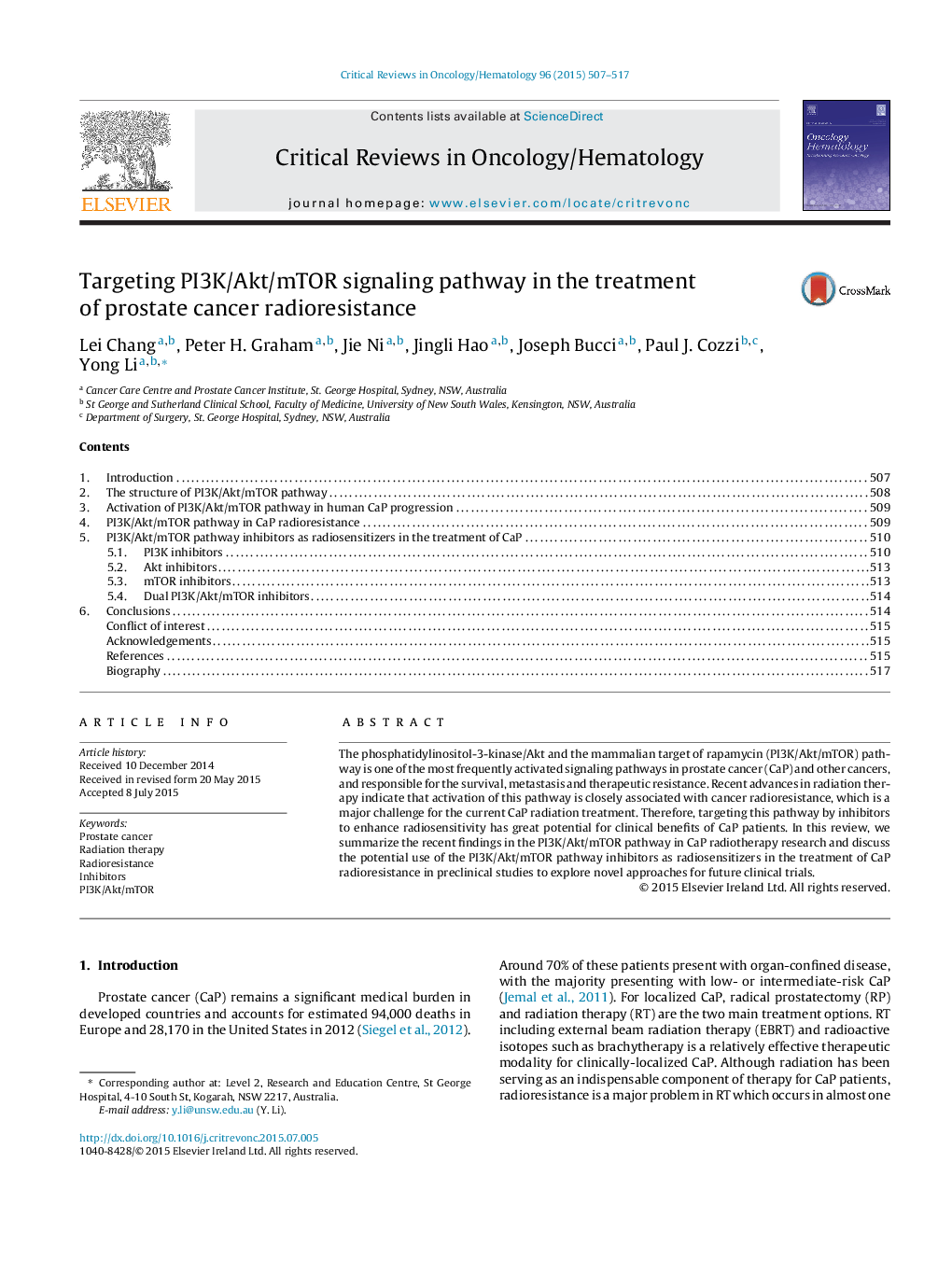| Article ID | Journal | Published Year | Pages | File Type |
|---|---|---|---|---|
| 3328588 | Critical Reviews in Oncology/Hematology | 2015 | 11 Pages |
•We demonstrated that the PI3K/Akt/mTOR signaling pathway plays a very important role in prostate cancer radioresistance.•We found that activation of the PI3K/Akt/mTOR pathway proteins are associated with prostate cancer progression.•We demonstrated the link between the PI3K/Akt/mTOR pathway and cancer stem cells in prostate cancer radioresistance.•Combination therapy of PI3K/Akt/mTOR pathway inhibitors with radiotherapy holds promise for prostate cancer treatment.
The phosphatidylinositol-3-kinase/Akt and the mammalian target of rapamycin (PI3K/Akt/mTOR) pathway is one of the most frequently activated signaling pathways in prostate cancer (CaP) and other cancers, and responsible for the survival, metastasis and therapeutic resistance. Recent advances in radiation therapy indicate that activation of this pathway is closely associated with cancer radioresistance, which is a major challenge for the current CaP radiation treatment. Therefore, targeting this pathway by inhibitors to enhance radiosensitivity has great potential for clinical benefits of CaP patients. In this review, we summarize the recent findings in the PI3K/Akt/mTOR pathway in CaP radiotherapy research and discuss the potential use of the PI3K/Akt/mTOR pathway inhibitors as radiosensitizers in the treatment of CaP radioresistance in preclinical studies to explore novel approaches for future clinical trials.
